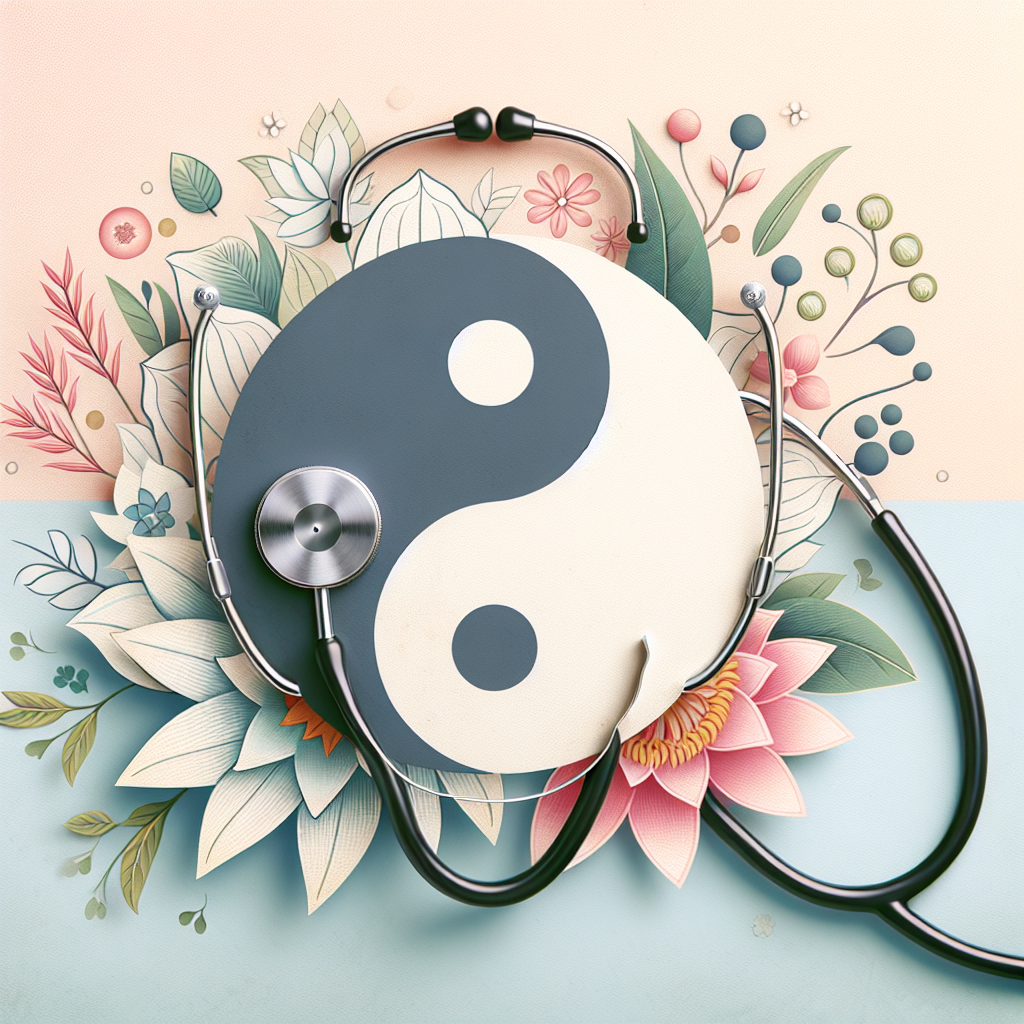Healing Ulcers: A Comprehensive Guide to Western Medical Treatments and Eastern Alternative Approaches
Ulcers, particularly peptic ulcers, are painful sores that develop on the lining of the stomach, small intestine, or esophagus. These sores can cause a range of symptoms including stomach pain, bloating, indigestion, and in severe cases, bleeding. The management of ulcers has seen tremendous advancements over the years, with Western medical treatments and Eastern alternative approaches offering varied solutions. This comprehensive guide delves into both methods, comparing and contrasting their efficacy, principles, and practices.
Western Medical Treatments for Ulcers
1. Understanding the Cause:
Western medicine identifies Helicobacter pylori (H. pylori) bacterial infection and nonsteroidal anti-inflammatory drugs (NSAIDs) as the primary culprits behind most peptic ulcers. Understanding these causes has directed the course of treatment.
2. Pharmacological Interventions:
– Antibiotics: For ulcers caused by H. pylori, a combination of antibiotics like amoxicillin, clarithromycin, and metronidazole is employed to eradicate the bacteria.
– Proton Pump Inhibitors (PPIs): Drugs such as omeprazole and esomeprazole reduce stomach acid production, promoting healing by creating a less acidic environment.
– H2-Receptor Antagonists: Medications like ranitidine and famotidine also reduce acid production, albeit through a different mechanism compared to PPIs.
– Antacids and Alginates: These over-the-counter options neutralize stomach acid and provide symptomatic relief.
3. Surgical Interventions:
In cases where ulcers do not respond to medication, or complications such as perforation or severe bleeding occur, surgical intervention may be necessary. Procedures like vagotomy (cutting the vagus nerve to reduce acid secretion) and partial gastrectomy (removal of part of the stomach) are considered.
4. Lifestyle Modifications:
Western medicine also emphasizes the importance of lifestyle changes. This includes quitting smoking, moderating alcohol consumption, and avoiding NSAIDs unless absolutely necessary. Dietary modifications, such as eating smaller, more frequent meals and avoiding spicy, acidic foods, are also recommended.
Eastern Alternative Approaches to Treating Ulcers
Eastern medicine, encompassing Traditional Chinese Medicine (TCM), Ayurveda, and other holistic practices, takes a different route, focusing more on balancing the body’s internal environment and harnessing natural healing processes.
1. Root Cause and Body Balance:
Eastern practices often view ulcers as a manifestation of imbalances within the body. Factors such as stress, poor diet, and disharmony in the body’s energy (Qi in TCM or doshas in Ayurveda) are considered significant.
2. Herbal Remedies:
– TCM Herbs: Herbs like licorice root (Glycyrrhiza glabra), slippery elm (Ulmus rubra), and marshmallow root (Althaea officinalis) are commonly used to soothe and heal the stomach lining. Licorice, in particular, contains compounds that enhance mucus production and protect the stomach lining.
– Ayurvedic Herbs: Ayurvedic medicine uses herbs like amla (Indian gooseberry), turmeric, and aloe vera, which are believed to have anti-inflammatory and healing properties.
3. Acupuncture and Acupressure:
TCM practitioners often employ acupuncture to treat ulcers. By stimulating specific points on the body, acupuncture aims to restore the flow of Qi, reducing stress and enhancing digestive functions. Acupressure, which involves applying pressure to these points, can also be beneficial.
4. Dietary and Lifestyle Adjustments:
– Ayurveda: Dietary recommendations are personalized based on an individual’s dosha. For instance, a Pitta-dominant individual (prone to heat and inflammation) may be advised to consume cooling and soothing foods such as milk, ghee, and cucumbers. Avoiding spicy, sour, and oily foods is crucial.
– TCM: A TCM practitioner may recommend a diet that avoids “heating” foods like alcohol, coffee, and spicy dishes, and includes “cooling” foods like leafy greens, melons, and certain grains.
5. Mind-Body Techniques:
Stress is considered a significant contributing factor in Eastern medicine. Techniques such as yoga, Tai Chi, meditation, and Qi Gong are employed to manage stress and enhance overall well-being, thus aiding in the healing of ulcers.
Comparison and Contrast of Western and Eastern Approaches
1. Philosophical Underpinnings:
– Western medicine is rooted in the germ theory of disease and focuses heavily on scientific evidence and pharmacological solutions. The approach is often symptomatic, aiming to eliminate the direct cause (e.g., H. pylori) and alleviate symptoms.
– Eastern medicine emphasizes the body’s internal balance and holistic healing. It seeks to address the root cause by restoring harmony within the body’s systems, using natural and non-invasive methods.
2. Treatment Modalities:
– Western treatments prioritize quick and targeted relief through medications and, in severe cases, surgery.
– Eastern practices often involve a longer-term commitment to lifestyle and dietary changes, herbal remedies, and mind-body techniques, aiming for gradual but sustainable healing.
3. Integration and Complementarity:
There is growing recognition of the benefits of integrating both approaches. For instance, a patient may use antibiotics to eliminate H. pylori (Western approach) while simultaneously incorporating stress-reducing practices like yoga and consuming healing herbs (Eastern approach) to support overall health and prevent recurrence.
4. Evidence and Acceptance:
– Western treatments are often backed by rigorous clinical trials and are widely accepted in the scientific community.
– Eastern methods, while sometimes lacking in large-scale clinical evidence, are supported by centuries of tradition and anecdotal success. Modern research is increasingly validating the efficacy of certain herbs and mind-body practices.
Conclusion
Healing ulcers requires a comprehensive understanding of both Western medical treatments and Eastern alternative approaches. While Western medicine offers rapid relief through pharmacological and surgical interventions, Eastern practices provide a holistic and preventive strategy that addresses the root causes and promotes overall well-being. An integrated approach, combining the strengths of both traditions, may offer the most effective pathway to healing and long-term health. As always, individuals should consult with healthcare professionals to tailor a treatment plan that best suits their specific needs and conditions.

